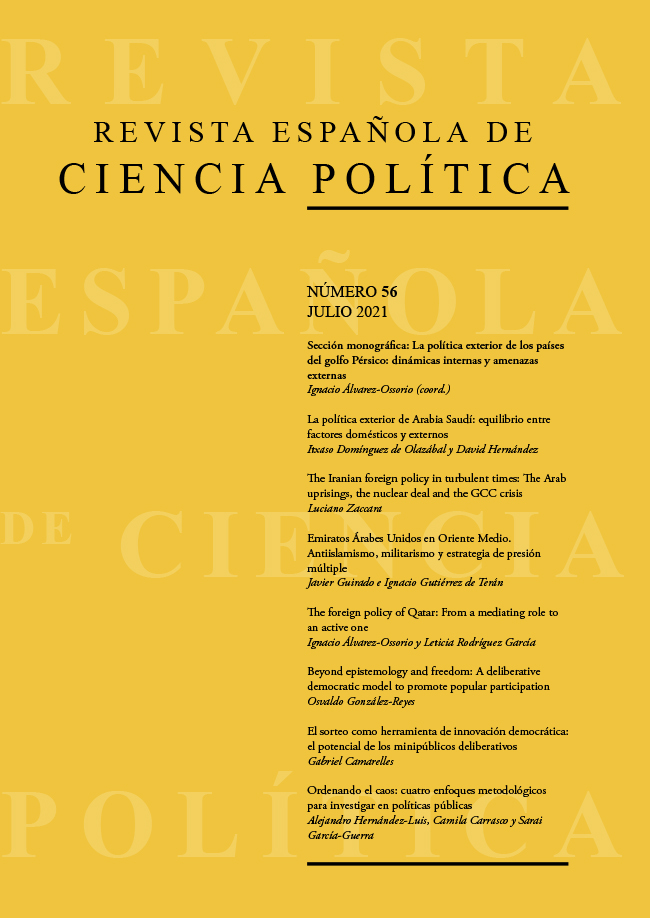The Iranian foreign policy in turbulent times: The Arab uprisings, the nuclear deal and the GCC crisis
DOI:
https://doi.org/10.21308/recp.56.02Keywords:
Iranian foreign policy, foreign policy analysis, JCPOA, Arab Uprisings, GCC crsisAbstract
Using the Foreign Policy Analysis framework and the concept of Authoritative Decision Units, this article analyzes three cases that required an Iranian response: the Arab Uprisings, the nuclear negotiations, and the 2017 GCC Crisis. The article argues that it was not a single actor taking the foreign policy decisions in those cases, but a combination of individual and collective actors that formed the decision units that designed and implemented Iranian foreign policy. It also contends that those decisions were in line with the overall Iranian foreign policy objective —which is to convert Iran into a regional power— and, to that aim, variations of non-alignment strategies were implemented.
Downloads
Published
How to Cite
Issue
Section
License
Copyright (c) 2021 Luciano Zaccara

This work is licensed under a Creative Commons Attribution-NonCommercial-NoDerivatives 4.0 International License.






